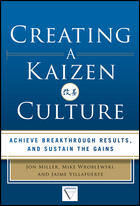
Choices. We all make them, everyday. From the clothes we wear to the business deals we make. Some are routine and are given little thought. Others are life-changing and we pour over every detail and sweat every possible outcome. Regardless of how important, and whether we are aware of it or not, these choices are governed by circumstance, experience and even emotion.
About ten years ago, the entire country was embedded in the controversy of a choice. And I am sure we all remember it, because it was a particularly important choice-who would be the next president of the United States.
In 2000, the United States presidential election was one of the closest and most controversial presidential elections in history. A month of recounts and court challenges followed culminated in a Supreme Court case. Following the court’s 5-4 decision, George W. Bush was declared the winner over Vice President Al Gore by 537 votes in the state of Florida. This was the 16th time in history that a candidate won the Electoral College vote without receiving the majority of the popular vote.
While the subject was debated by the highest court in the land, it also was the topic of water-cooler discussions, talk-show and news segments, and eventually a couple of movies.
Some of the more memorable aspects of the controversy included the notorious Palm Beach butterfly ballot, which produced an unexpectedly large number of votes for third-party candidate Patrick Buchanan; the purge of some 50,000 alleged felons from the Florida voting rolls that included many voters who were eligible to vote under Florida law; not to mention the hanging chad.
There has also been much speculation on what might have happened if there had been recounts under different rules. A consortium of newspapers did an investigation that flushed out a number of scenarios, even going as far as to say that Bush still would have won under the recounts that Gore had proposed.
It is not really a surprise that the situation bred such emotion, speculation and interest. Again, not only because of the impact on the highest echelons of government, but also because of the importance of choice. The idea of choice permeates through our government and our lives. Choice surrounds important philosophies on ethics and behavior and is an important tenant of capitalism itself. Existentialists have commented that even when we choose not to make a choice, we are making a choice.
So join the likes of Kierkegaard, Sartre and Getty Lee and read about choosing the right equipment for the job in this month’s feature articles, “What Machine Vision Solution is Right for You,” by Kevin Shayne and Dr. Norman N. Axelrod’s “3-D Imaging for On-Line Product and Process Control.”
Enjoy and thanks for reading!

